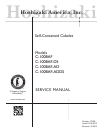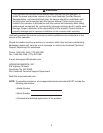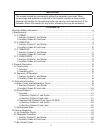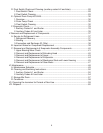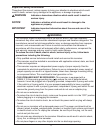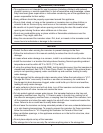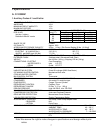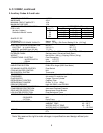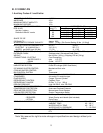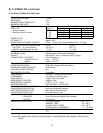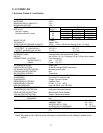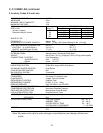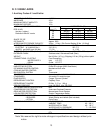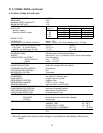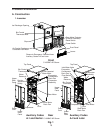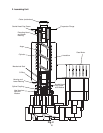
6
WARNING, continued
• This appliance is not intended for use by persons (including children) with reduced
physical, sensory, or mental capabilities, or lack of experience and knowledge, unless
they have been given supervision or instruction concerning use of the appliance by a
person responsible for their safety.
• Young children should be properly supervised around this appliance.
• Do not climb, stand, or hang on the icemaker or icemaker door or allow children or
animals to do so. Serious injury could occur or the icemaker could be damaged.
• Be careful not to pinch ngers when opening and closing the door. Be careful when
opening and closing the door when children are in the area.
• Do not use combustible spray or place volatile or ammable substances near the
icemaker. They might catch re.
• Keep the area around the icemaker clean. Dirt, dust, or insects in the icemaker could
cause harm to individuals or damage to the icemaker.
NOTICE
• Protect the oor when moving the icemaker to prevent damage to the oor.
• Follow the instructions in this manual carefully to reduce the risk of costly water
damage.
• In areas where water damage is a concern, install in a contained area with a oor drain.
• Install the icemaker in a location that stays above freezing. Normal operating ambient
temperature must be within 45°F to 100°F (7°C to 38°C).
• If using the optional drain pump (HS-0248), test its operation every time the icemaker is
cleaned and sanitized. See "IV.E.2. Drain Pump Check" for details. If the optional drain
pump is not operating properly, water could back up and overow, leading to costly
water damage.
• To help ensure that the storage bin drain remains clear, follow the instructions in "VI.C.
Storage Bin Drain" once every 3 months or as often as necessary for conditions. If
the storage bin drain becomes clogged, water could build up in the bin and overow,
leading to costly water damage.
• If water collects in the bin and will not drain, turn off the icemaker and close the water
supply line shut-off valve. Locate and resolve the issue.
• To help protect against unseen water issues, this icemaker features a drip tray and
emergency overow hose. See Fig. 1. If there is water in the drip tray, coming out of
the reservoir emergency overow hose, or seeping from the base of the icemaker, turn
off the icemaker and close the water supply line shut-off valve. Locate and resolve the
issue. Failure to do so could lead to costly water damage.
• Do not leave the icemaker on during extended periods of non-use, extended absences,
or in sub-freezing temperatures. To properly prepare the icemaker for these occasions,
follow the instructions in "VII. Preparing the Icemaker for Periods of Non-Use."
• Keep ventilation openings, in the appliance enclosure or in the built-in structure, clear
of obstruction.
• Do not place objects on top of the icemaker.
• The storage bin is for ice use only. Do not store anything else in the storage bin.



